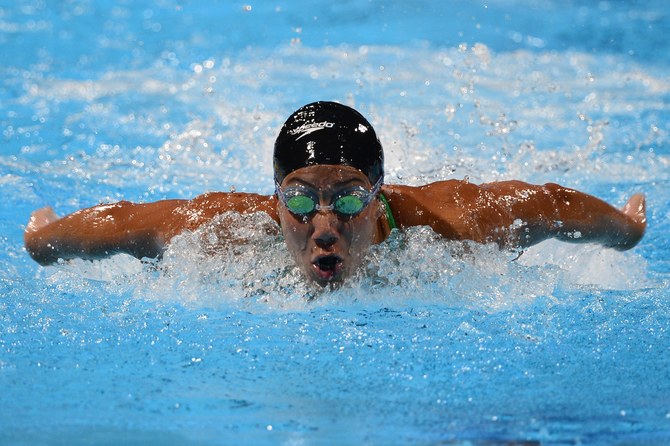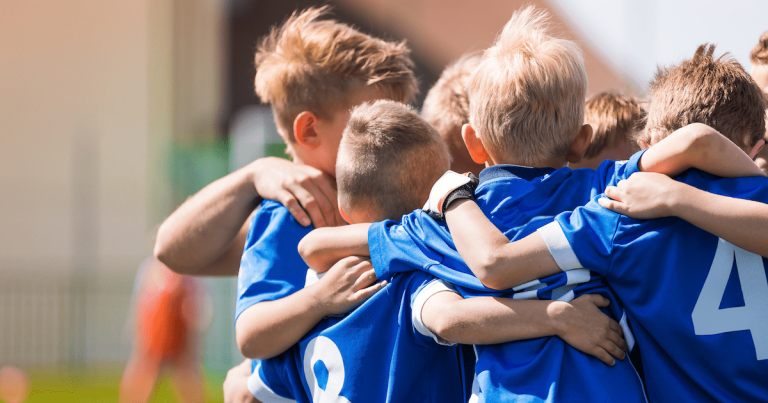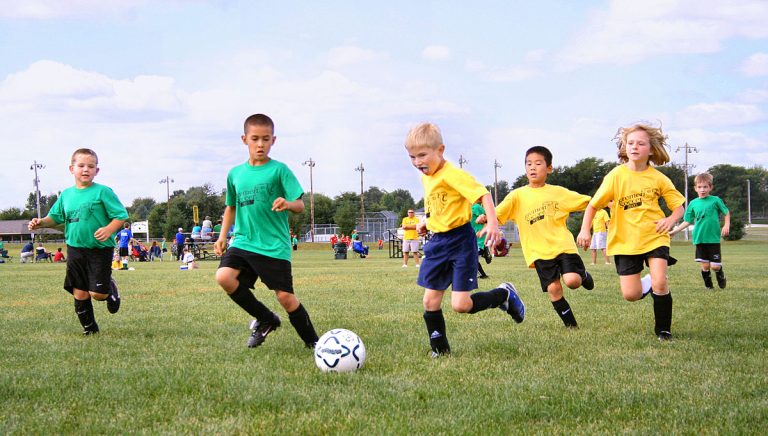Teaching Grit: Helping Teen Athletes Keep Going
As a parent, it’s common to encounter moments of concern and reflection regarding our children’s participation in sports. Recently, over lunch with a friend, she shared her exhaustion stemming from her son’s disappointing performance on the football field. Despite a generally successful season, this one setback weighed heavily on her mind, raising doubts about her son’s future involvement in the 24hscore sport.
Reflecting on this conversation, it becomes evident that the journey of youth sports encompasses far more than physical activity. Beyond the tangible benefits of athleticism lie opportunities for social growth, teamwork, and personal development. Yet, statistics reveal a concerning trend: a significant number of young athletes disengage from organized sports due to the pressures that overshadow the enjoyment of the game.
In light of these challenges, licensed psychologist Dr. Nick Molinaro, alongside Celeste Romano, delves into the complexities of nurturing resilience and perseverance in young athletes. In their recent publication, “Beyond the Scoreboard: Learn It Through Youth Sports, Carry It Through Life,” they explore strategies to help athletes navigate setbacks, maintain their passion, and remain committed to their athletic endeavors.
Dr. Nick emphasizes that fostering grit in young athletes is not a quick fix but rather a gradual process that requires a shift in parental dialogue. Drawing parallels to the early stages of parenthood, where soothing a baby’s cries transitions into teaching self-soothing, Dr. Nick underscores the importance of equipping athletes with the tools to navigate challenges independently.
This perspective prompts a deeper exploration of the multifaceted nature of grit and its role in youth sports. While performance on the field may serve as a tangible measure of success, cultivating resilience and perseverance extends beyond athletic achievements. It involves instilling a growth mindset—a belief in the power of effort and determination to overcome obstacles and achieve personal growth.
Within this framework, parents play a pivotal role in shaping their children’s mindset and approach to challenges. By fostering a growth-oriented dialogue that emphasizes learning and improvement, parents empower young athletes to view setbacks as opportunities for growth rather than insurmountable barriers. This shift in perspective not only promotes resilience but also instills a sense of agency and self-efficacy in young athletes, equipping them with invaluable skills for navigating life’s challenges beyond the sports arena.
Furthermore, nurturing grit in young athletes requires a balanced approach to feedback and reinforcement. While positive reinforcement is essential for motivation and confidence-building, it’s equally important to provide constructive feedback that focuses on effort and progress rather than outcomes alone. By dissociating praise from performance outcomes, parents create a supportive environment where athletes feel valued for their dedication and perseverance, irrespective of the scoreboard.
In moments of disappointment or adversity, parents have an opportunity to model resilience and growth-mindedness through their responses. Instead of offering hollow praise or harsh criticism, they can engage in meaningful conversations that encourage self-reflection and goal-setting. By encouraging athletes to identify areas for improvement and develop actionable strategies for growth, parents empower them to take ownership of their development and foster a sense of accountability and resilience.
Ultimately, teaching grit and perseverance in young athletes is a journey that unfolds over time, requiring patience, empathy, and a commitment to nurturing a growth-oriented mindset. By fostering a supportive environment that celebrates effort, resilience, and personal growth, parents can empower their children to navigate the challenges of youth sports with confidence, resilience, and a passion for the game.

Understanding Grit: Cultivating Resilience in Young Athletes
In the realm of youth sports, the concept of “grit” often emerges as a crucial factor in determining an athlete’s success. But what exactly does grit entail, and how can parents play a role in fostering this essential quality in their children?
According to Dr. Nick, grit encompasses three fundamental components: passion, perseverance, and a diminished reliance on external validation.
Passion and Perseverance:
While passion may appear to be an innate quality, Dr. Nick suggests that it can be nurtured through encouragement and support. Perseverance, on the other hand, involves the ability to persist in the face of adversity—a trait that can be instilled through both words and actions.
Maintaining a growth-oriented mindset, as championed by psychologist Carol S. Dweck, is instrumental in fostering perseverance. Individuals with a growth mindset view challenges as opportunities for growth and are more inclined to embrace setbacks as valuable learning experiences. In contrast, those with a fixed mindset attribute success solely to innate talent and are prone to giving up when confronted with obstacles.

Reduced Dependence on Positive Reinforcement:
While positive reinforcement is undeniably valuable, Dr. Nick advises parents to offer feedback that is specific to their child’s performance rather than relying solely on praise or criticism. By refraining from tethering their love and support to performance outcomes, parents create an environment where athletes feel valued for their efforts and resilience rather than their wins or losses.
Avoiding the pitfalls of excessive praise or criticism, parents can help athletes recognize the inherent value in failure and the opportunities it presents for growth and development. By fostering a growth-oriented dialogue and encouraging self-reflection, parents empower athletes to set meaningful goals and strive for continual improvement.
In addressing my friend’s concerns about her son’s performance, Dr. Nick emphasizes the importance of maintaining a growth-oriented approach to conversations. Rather than resorting to false positives or excessive praise, parents should encourage athletes to reflect on their performance and identify areas for growth independently.
By allowing athletes to experience and navigate the discomfort of failure, parents instill a sense of resilience and self-reliance essential for long-term success. Through thoughtful dialogue and goal-setting, athletes can harness the power of failure as a catalyst for growth and ultimately emerge stronger and more resilient in their athletic pursuits.







